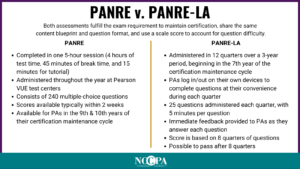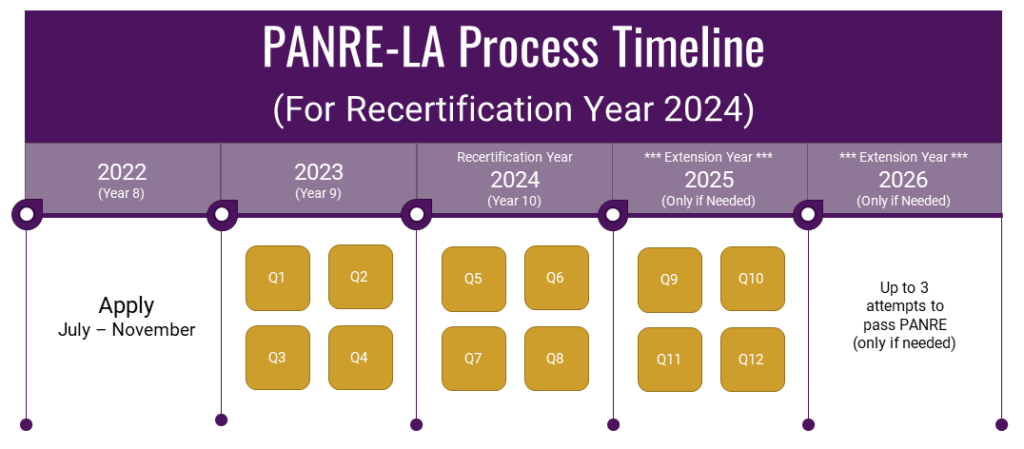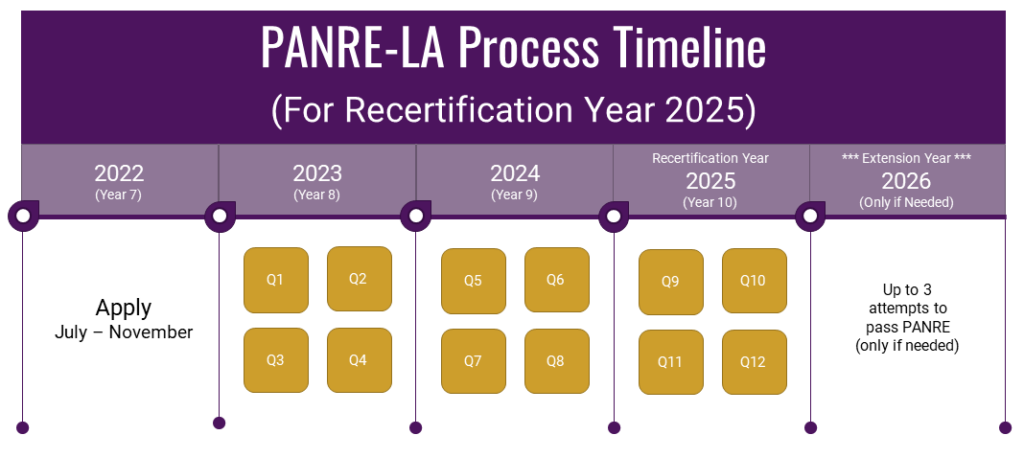To honor those who have demonstrated a longstanding commitment to lifelong learning, patient care, and the certification process, NCCPA will confer the PA-C Emeritus® designation on eligible PAs who apply for it.
PAs must apply for PA-C Emeritus® while still certified. The designation will take effect after their NCCPA board certification expires.
Eligibility Requirements for the PA-C Emeritus Designation
Board Certified PAs who apply for the PA-C Emeritus designation will be so designated following the expiration of their PA-C board certification provided they meet the following requirements:
- Document their retirement from clinical practice to the satisfaction of NCCPA by submitting the PA-C Retirement Form.
- Have been certified by NCCPA at least 20 cumulative years during their PA career or document that they have retired from clinical practice due to permanent disability and have qualified for federal Social Security Disability Insurance benefits and/or disability retirement or long-term disability benefits (acceptable documentation is a statement, record or letter on official letterhead from one of the following: a treating physician/medical professional, a federal government agency which issues or provides disability benefits or a state vocational rehabilitation agency);
- Have no reportable actions in their NCCPA disciplinary history and no NCCPA disciplinary matter in any stage of review;
- Pay any fees associated with the PA-C Emeritus application process; and
- Fulfill other administrative requirements as shall be determined from time to time by NCCPA.
Proceeds from the one-time $50 application fee will benefit the PA Foundation’s expansion of the which is awarded to PA students.
Maintenance Requirements for the PA-C Emeritus Designation
Like NCCPA board certification, the PA-C Emeritus designation shall be maintained on two-year, calendar year cycles.
Maintenance requires the completion of a reapplication process prior to the PA-C Emeritus designation expiration date, which will include attestation that the PA continues to meet the requirements established for initial eligibility. The PA-C Emeritus designation shall be suspended if the PA regains board certification and may be restored upon expiration of the regained certification if the PA meets the requirements for PA-C Emeritus status at that time.
PAs with the PA-C Emeritus designation must comply with all applicable provisions of the NCCPA Code of Conduct.
Limitations on Use of the PA-C Emeritus Designation
The PA-C Emeritus designation is not the equivalent of PA-C board certification. Those designated as PA-C Emeritus are not considered board certified by NCCPA and may not hold themselves out as such.
Further, the PA-C Emeritus designation may not be used in any clinical setting or in the context of any clinically related interaction, including clinical volunteer service.
Doing so – or committing any violation of the Code of Conduct or other act that would trigger NCCPA disciplinary review for Board Certified PAs — will result in review in accordance with NCCPA’s Policies and Procedures for PA Disciplinary Matters.
Sign in and go to “My Account” to apply.



